Resources
Here you can search external resources from STOP Spillover's experts (tagged in blue) and resources developed by the STOP Spillover project (tagged in red).
We found 14 resources.
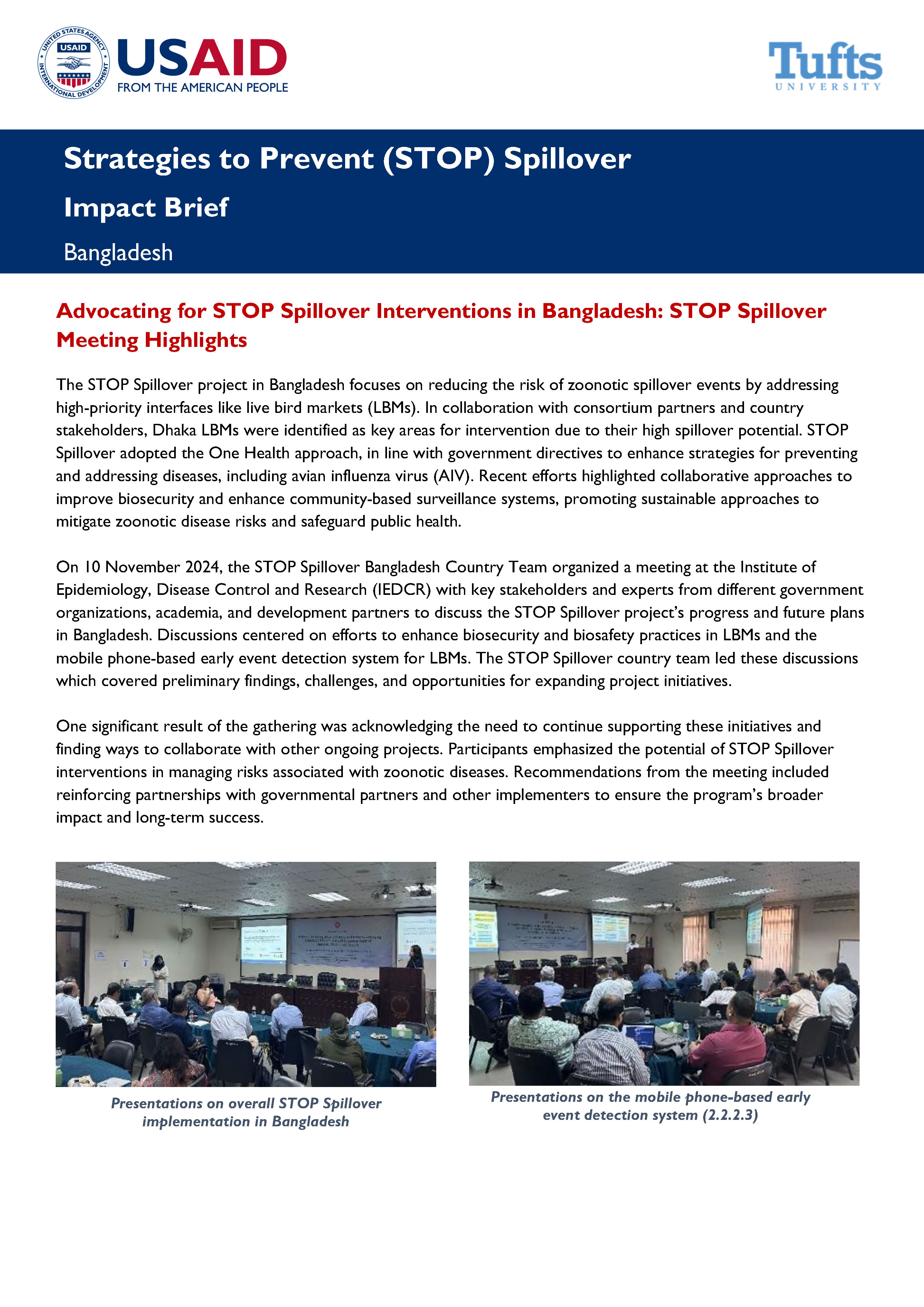
This brief describes a meeting that the STOP Spillover Bangladesh Country Team held with stakeholders to discuss the project's progress and future plans, including efforts to enhance biosecurity and biosafety practices in live bird markets and the mobile phone-based early event detection system.
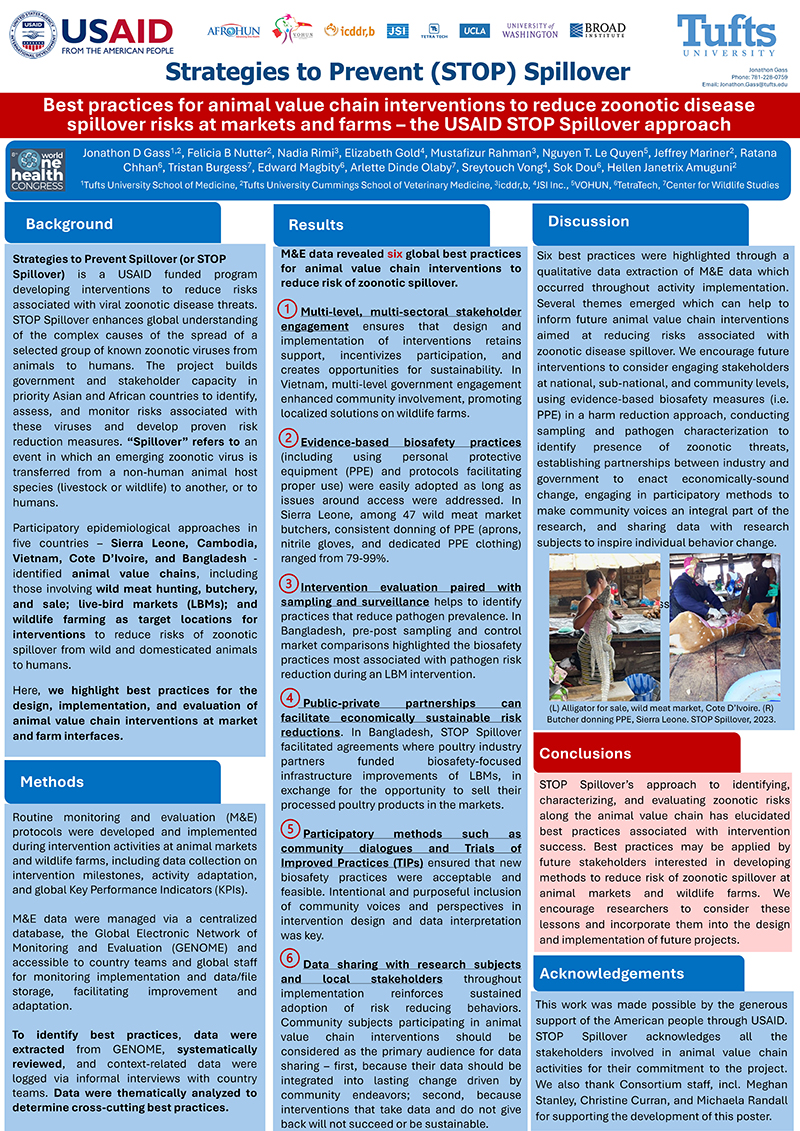
This STOP Spillover poster, presented at the 8th World One Health Congress 2024, describes six best practices for the design, implementation, and evaluation of animal value chain interventions at market and farm interfaces. The best practices were identified through qualitative data extraction of monitoring and evaluation data.
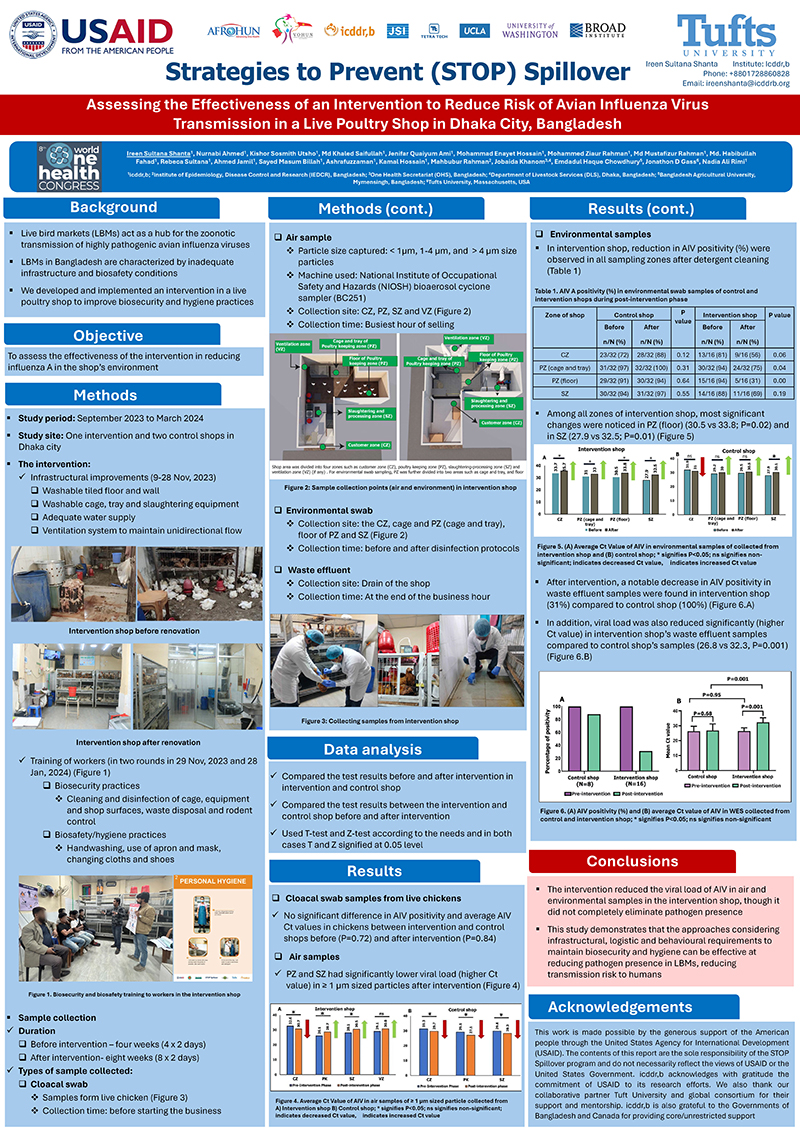
This STOP Spillover poster, presented at the 8th World One Health Congress 2024, describes a study of the effectiveness of an intervention to improve biosecurity and hygiene practices in a live poultry shop to reduce the presence of influenza A in the shop’s environment.
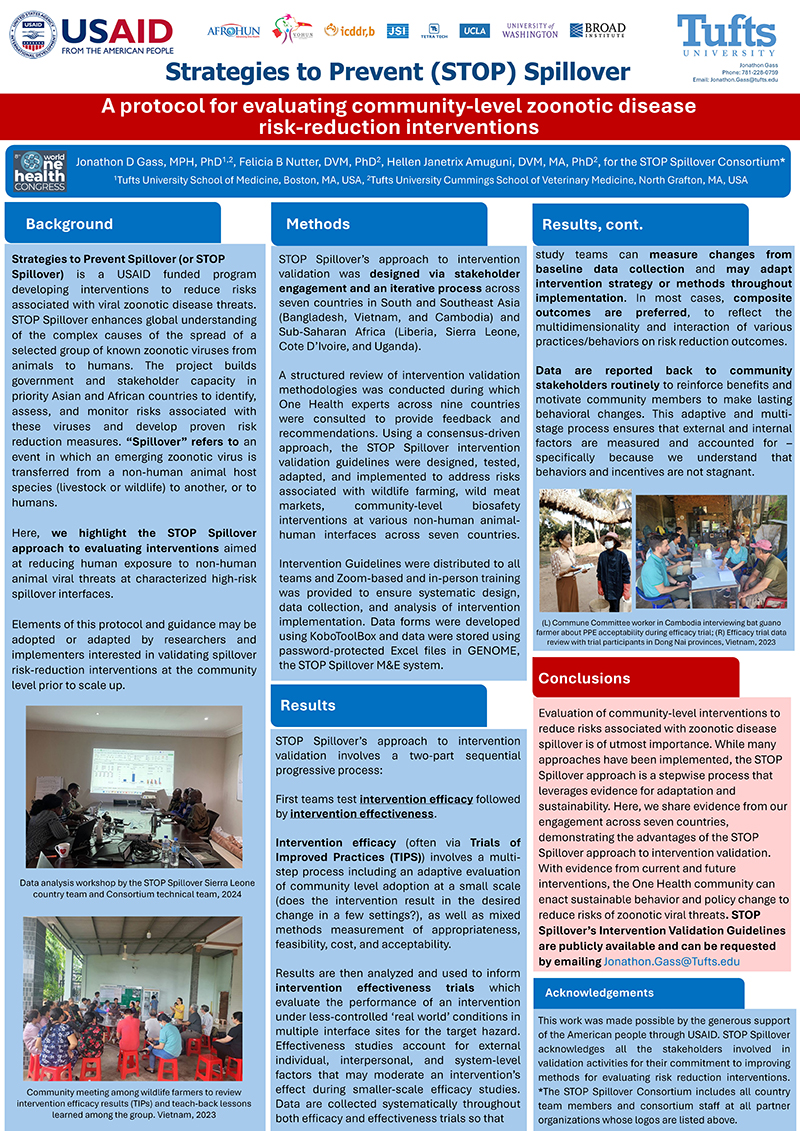
A Protocol for Evaluating Community-Level Zoonotic Disease Risk Reduction Interventions
This STOP Spillover poster, presented at the 8th World One Health Congress 2024, describes the project's approach to intervention validation, which was designed via stakeholder engagement and an iterative process across seven countries in South and Southeast Asia and Sub-Saharan Africa to address risks associated with wildlife farming, wild meat markets, and community-level biosafety interventions at various non-human animal-human interfaces.
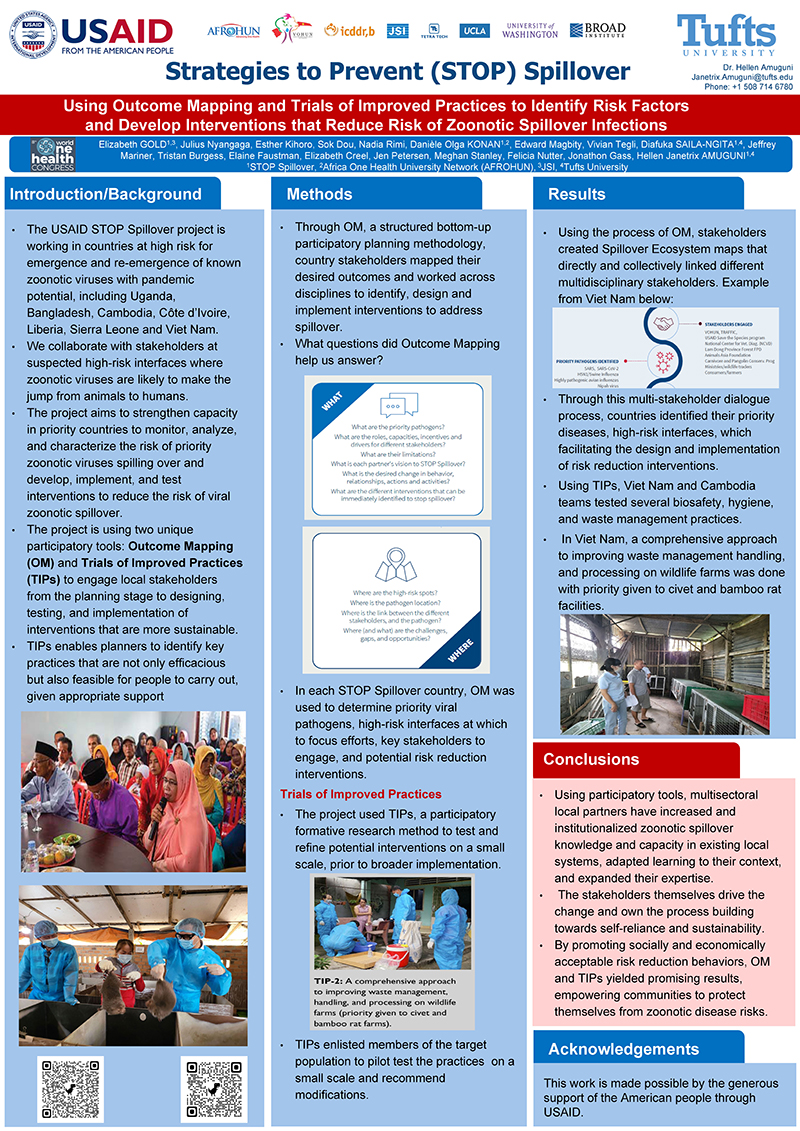
This STOP Spillover poster, presented at the 8th World One Health Congress 2024, describes the project's use of two unique participatory tools—Outcome Mapping and Trials of Improved Practices—to engage local stakeholders from the planning stage to designing, testing, and implementing interventions that are more sustainable.
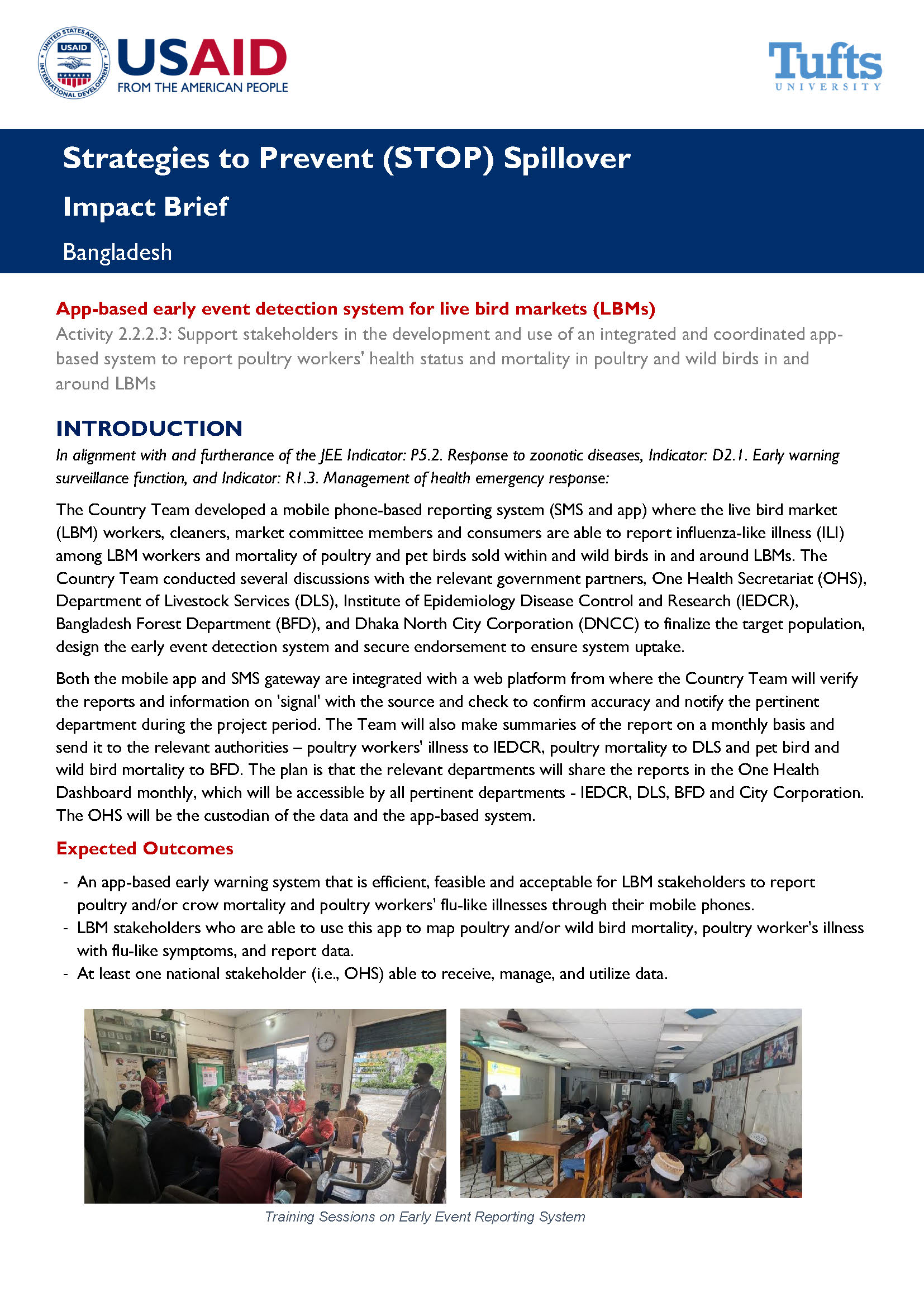
Impact Brief: App-Based Early Event Detection System for Live Bird Markets
This brief describes an app-based early warning system that enables live bird market workers, cleaners, market committee members, and consumers to report poultry and/or crow mortality and poultry workers' flu-like illnesses using their mobile phones.
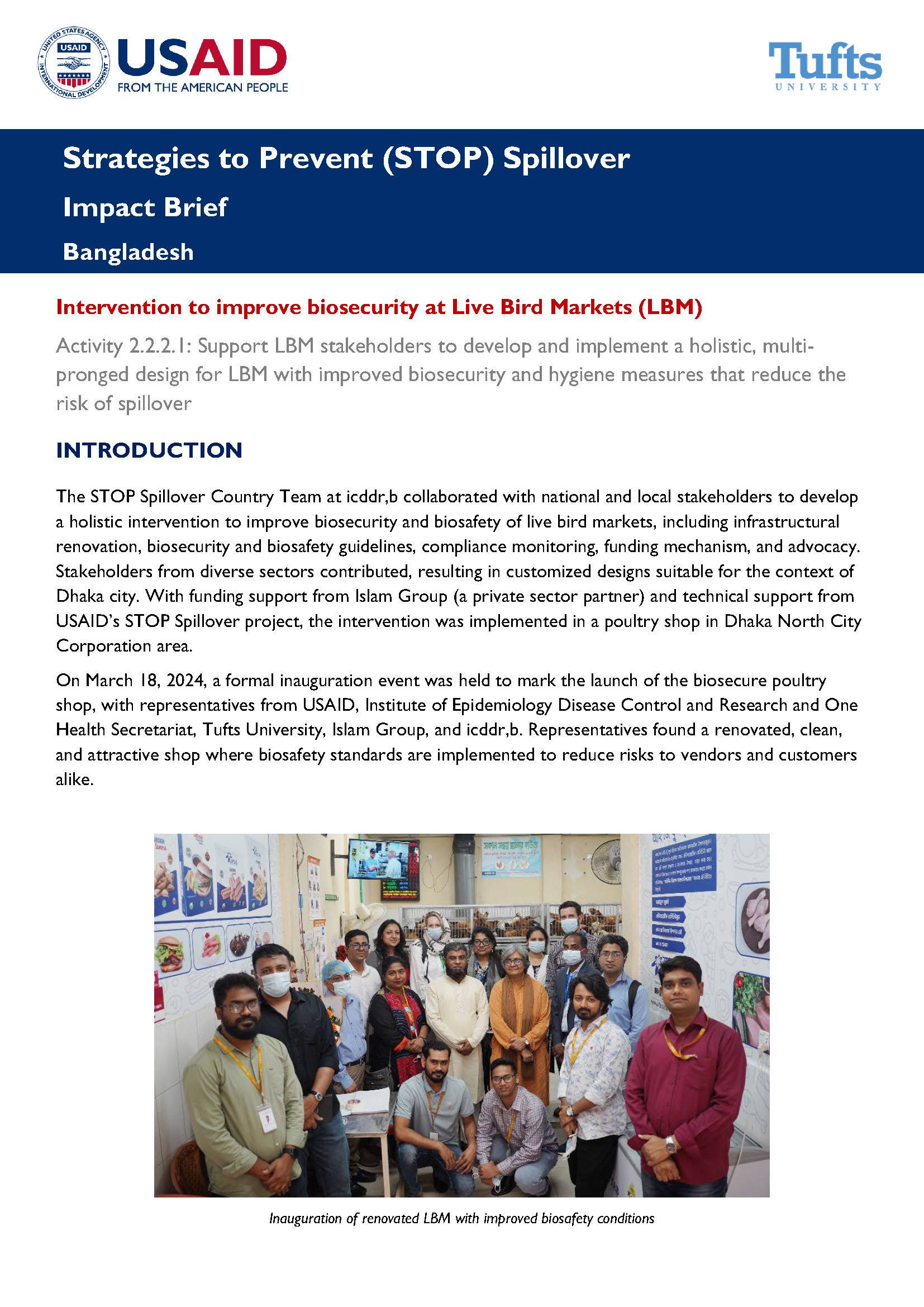
Impact Brief: Intervention to Improve Biosecurity at Live Bird Markets
This brief describes the STOP Spillover Bangladesh County Team's collaboration with national and local stakeholders to develop a holistic intervention to improve the biosecurity and biosafety of live bird markets.
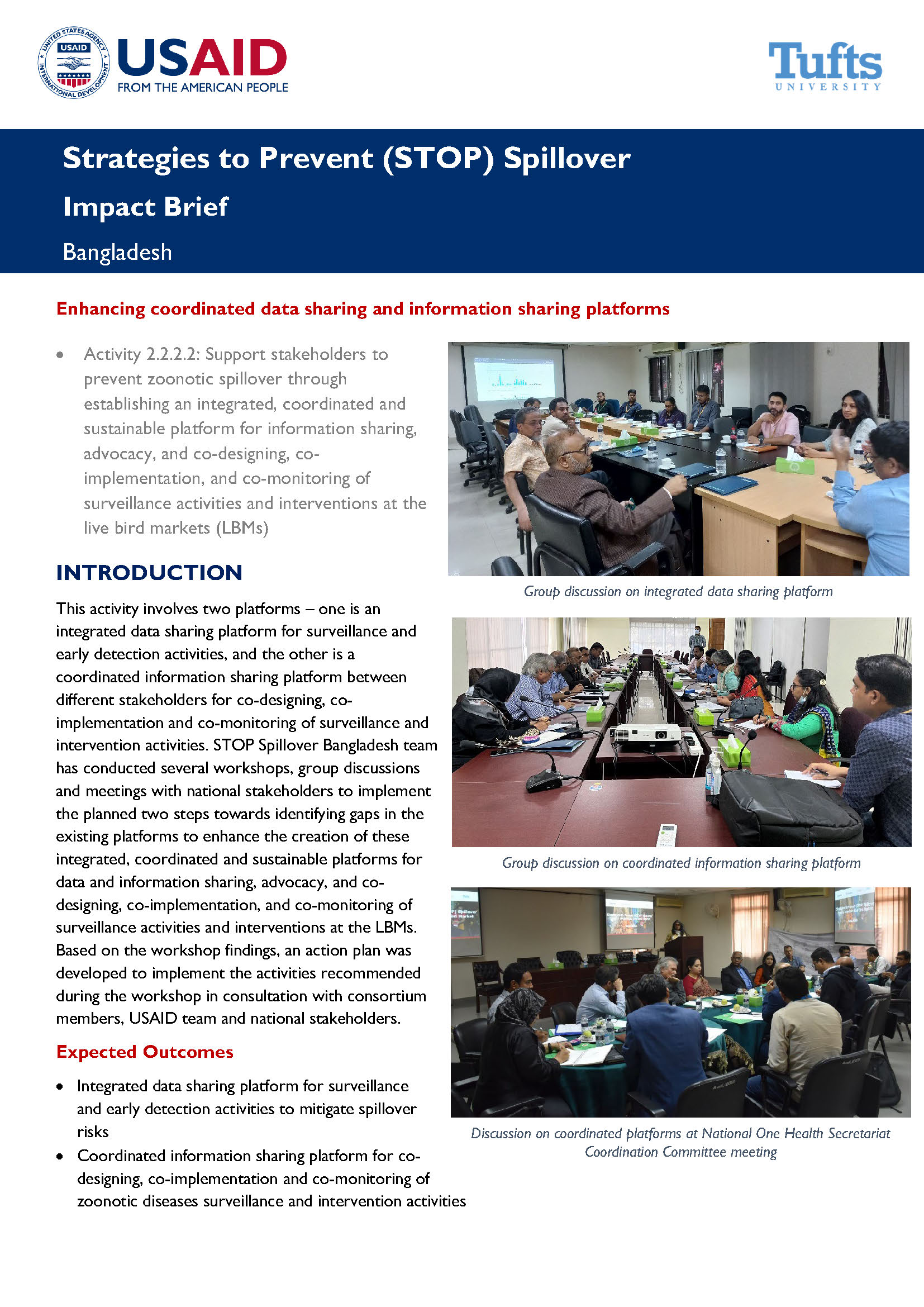
Impact Brief: Enhancing Coordinated Data Sharing and Information Sharing Platforms
This brief describes the STOP Spillover Bangladesh Country Team's work on an integrated data sharing platform for surveillance and early detection activities and a coordinated information sharing platform for co-design, co-implementation, and co-monitoring of surveillance and intervention activities.
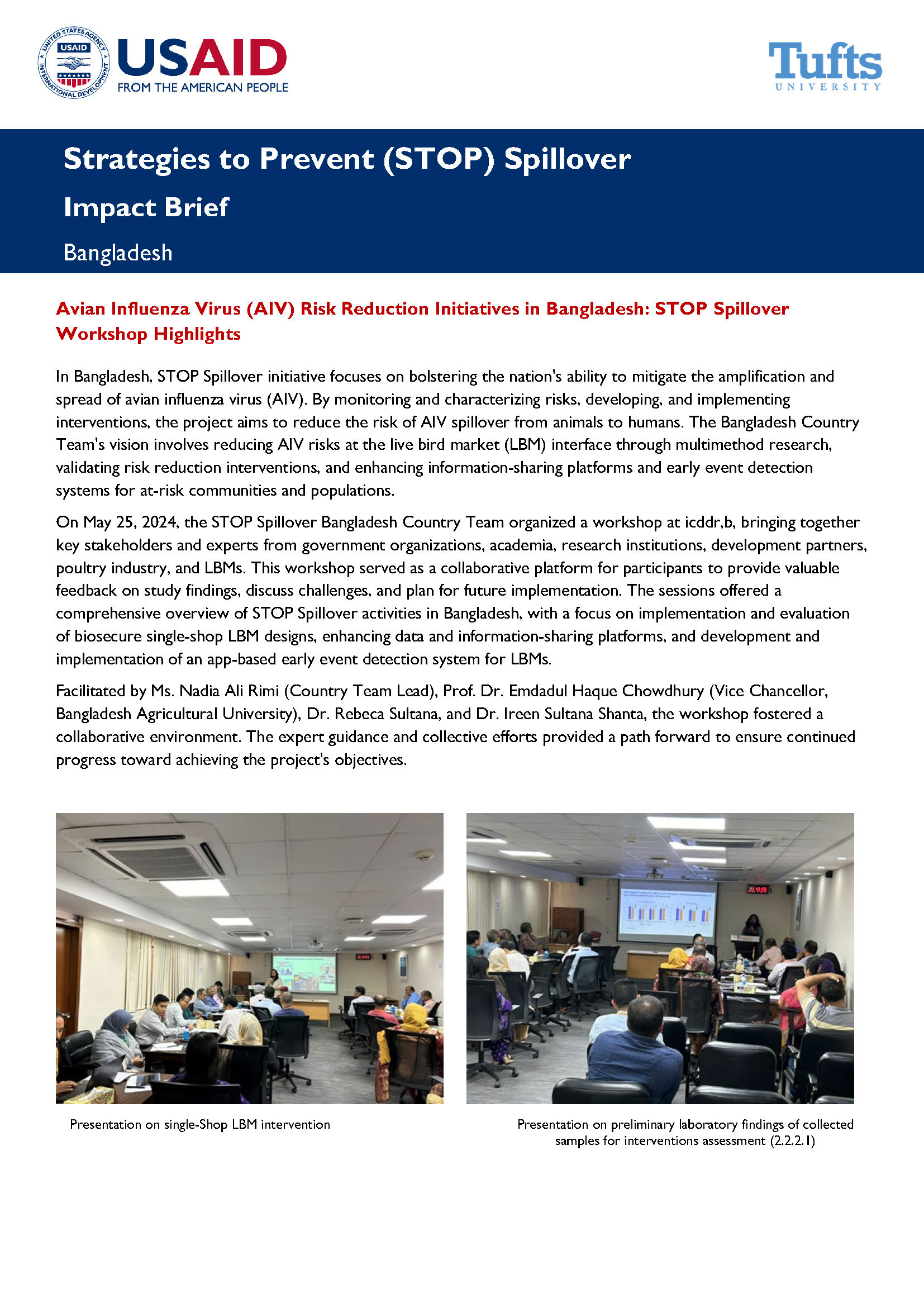
This brief summarizes a workshop that brought together stakeholders to discuss STOP Spillover activities in Bangladesh, in particular the implementation and evaluation of biosecure single-shop live bird market (LBM) designs, enhancing data and information-sharing platforms, and the development and implementation of an app-based early event detection system for LBMs.
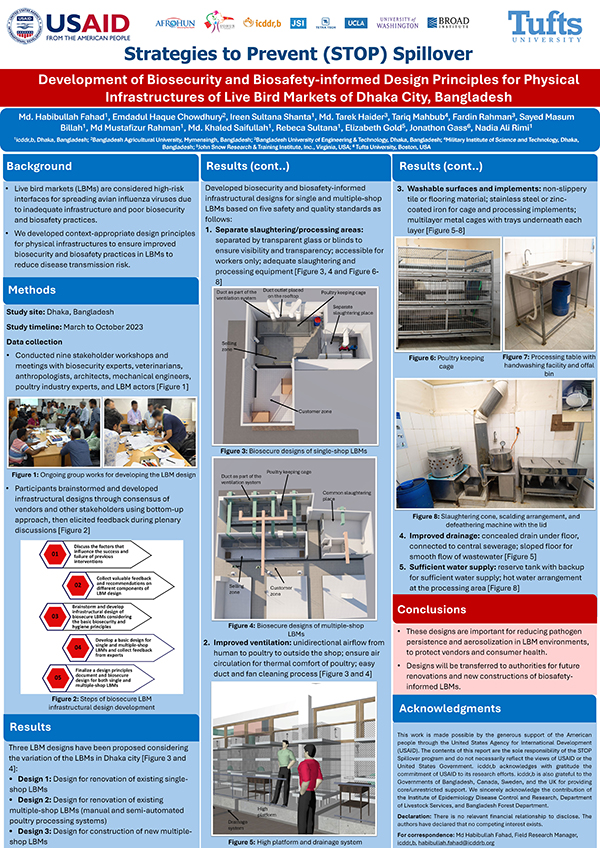
This STOP Spillover poster, presented at the June 2024 Global Health Security Conference, describes the Bangladesh Country Team's infrastructure designs for single and multiple-shop live bird markets based on biosafety and quality standards.
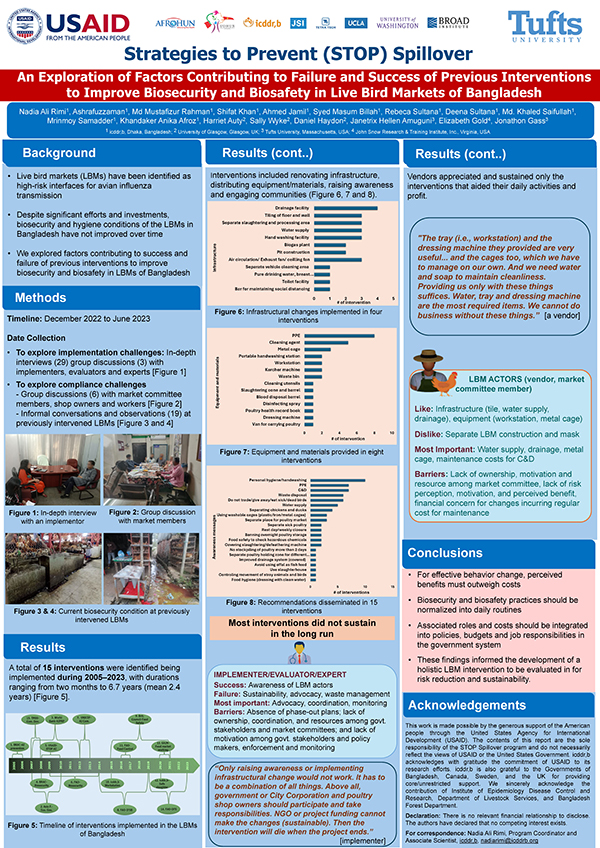
This STOP Spillover poster, presented at the June 2024 Global Health Security Conference, summarizes the Bangladesh Country Team's research on factors associated with the outcomes of earlier biosafety interventions in live bird markets in Dhaka.
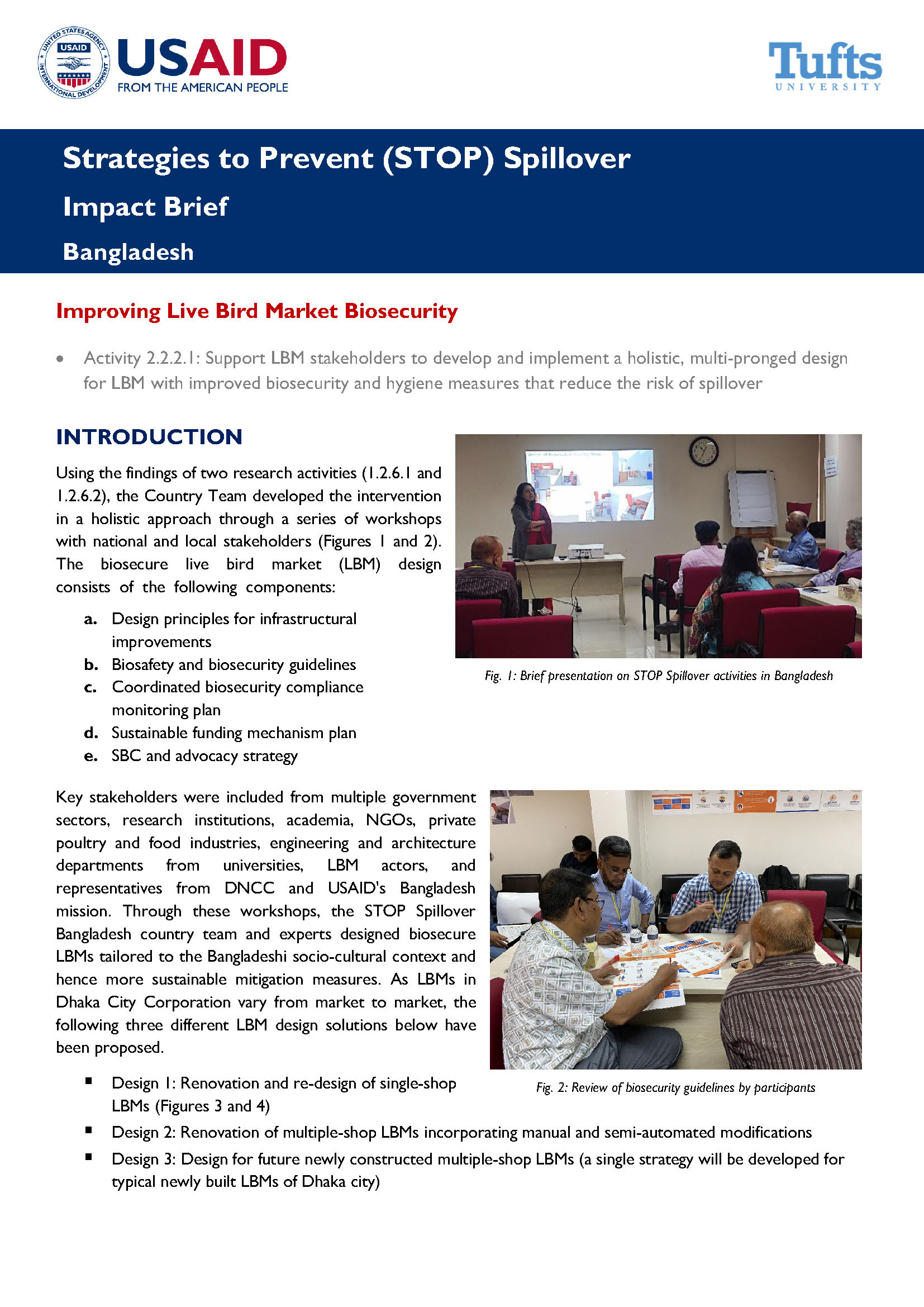
Impact Brief: Improving Live Bird Market Biosecurity
This brief summarizes the development of a holistic, multi-pronged design for a live bird market in Bangladesh that features biosecurity and hygiene measures to reduce the risk of spillover. The design was created through a series of workshops with national and local stakeholders.
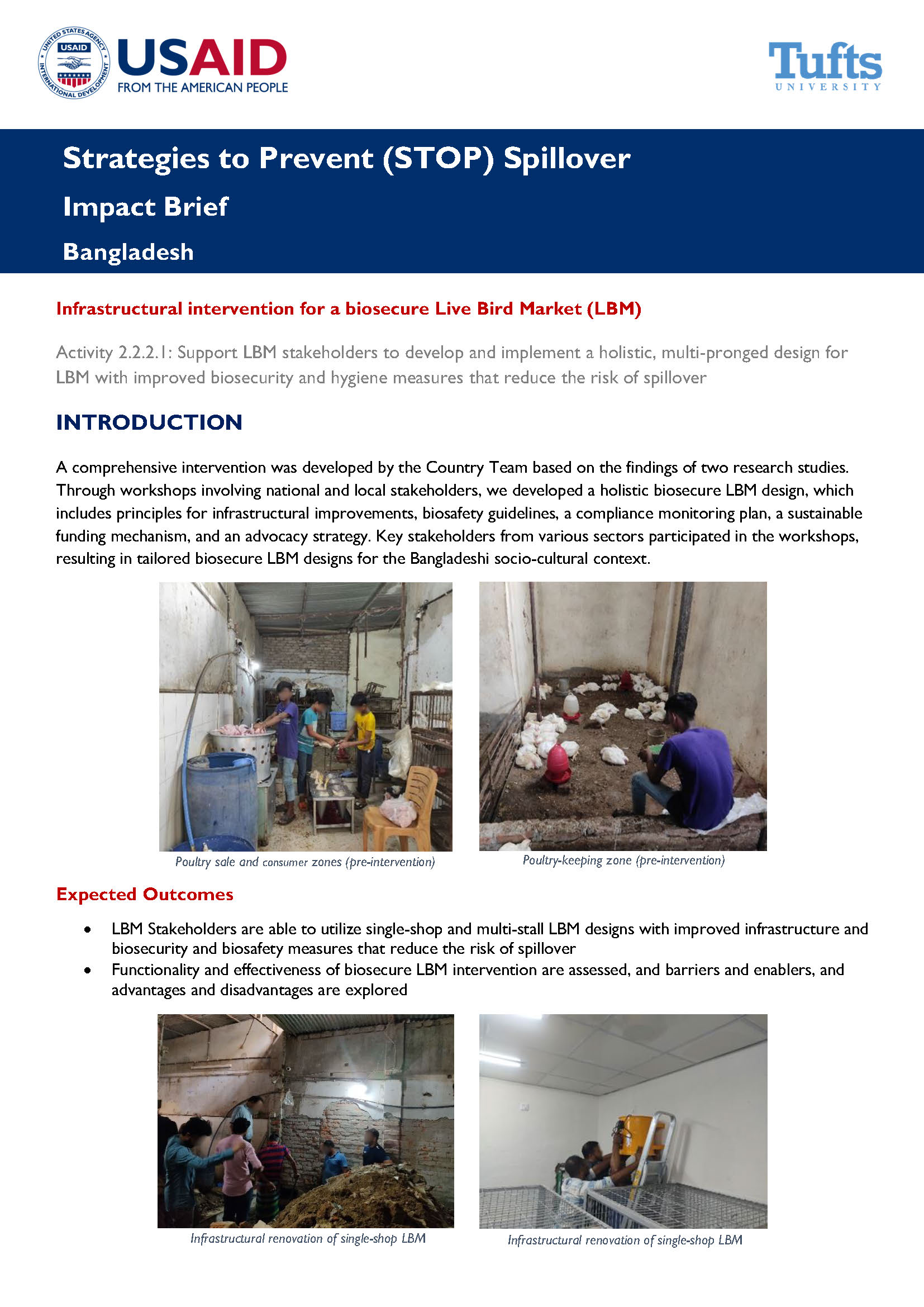
Impact Brief: Infrastructural Intervention for a Biosecure Live Bird Market
This brief summarizes an infrastructural intervention focused on collaborating with national and local stakeholders to develop and implement a holistic, multi-pronged design for a live bird market with improved biosecurity and hygiene measures that reduce the risk of spillover.
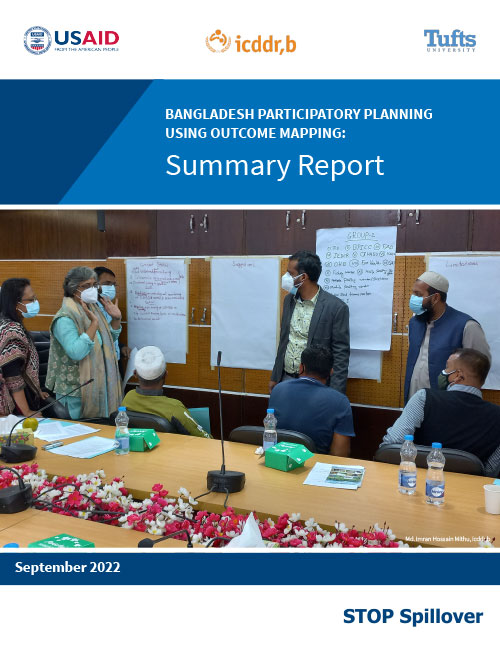
Bangladesh Participatory Planning Using Outcome Mapping: Summary Report
Through outcome mapping (OM), a structured participatory tool that uses a collaborative context-specific process, spillover ecosystem stakeholders (both traditional and nontraditional) are empowered to identify and reduce zoonotic spillover risks at human-animal-environment interfaces and develop an outcome-oriented project action plan. This report outlines the details of the OM activities held in Bangladesh.